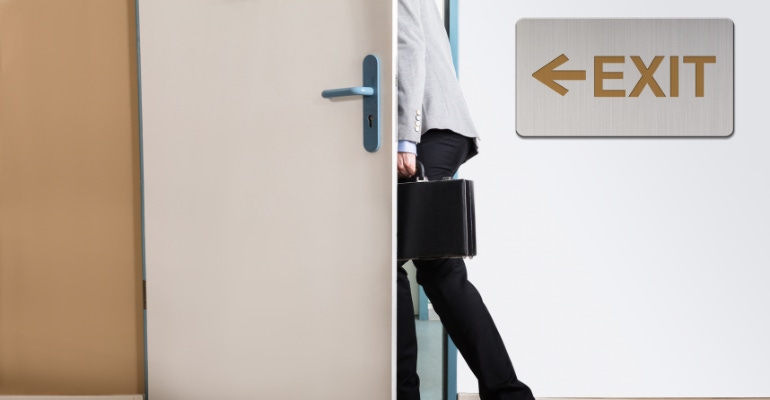Philips Cuts 6K More Jobs as ResMed Continues to Make Gains
ResMed continues to profit from a recall that knocked off 70% of Philips’ market value.
January 31, 2023

Philips said it will scrap another 6,000 jobs – in addition to the 4,000 job cuts announced last October – in an effort to simplify its operating model in the wake of a massive recall that knocked off 70% of the company's market value.
Half of the additional job cuts will be implemented this year, the Amsterdam, Netherlands-based company said Monday.
"The simplified operating model will make Philips more agile and competitive, enabling the company to deliver more impactful innovations for customers, patients and consumers, guided by a clear, but reduced number of KPIs. Equally important, Philips’ leaner and more focused organization will have a significantly reduced cost structure," Philips said.
"2022 has been a very difficult year for Philips and our stakeholders, and we are taking firm actions to improve our execution and step-up performance with urgency," said new CEO Roy Jakobs. "When I took over as CEO in October 2022, I said that our priorities are first to further strengthen our patient safety and quality management and address the Philips Respironics recall; second, to improve our supply chain reliability to convert our order book to sales and improve performance; and third, to simplify how we work to increase agility and productivity. This is a step-by-step improvement journey supported by our leading market positions, extended customer base, meaningful innovations, ecosystem partnerships, strong brand, and talented employees."
Jakobs said Philips has completed around 90% of the production for the remediation of its DreamStation sleep apnea devices. However, in November the company told FDA that reworked respirators have two new potential issues. The first issue had to do with the new silicone sound abatement foam, installed in the reworked ventilators to replace the polyester-based polyurethane (PE-PUR) foam, potentially separating from the plastic backing and impacting the performance of the device. The second issue deals with trace amounts of particulate matter that have been found in the air pathway of some reworked ventilators. Particulate samples were sent to a third-party lab for evaluation. Preliminary results show PE-PUR and environmental debris in some samples, and in others only environmental debris.
Philips' recall also highlights a big problem with at-home medical devices, as noted by ECRI, a Plymouth Meeting, PA-based independent, nonprofit patient safety organization. In its annual report of health technology hazards for the year, the organization warns that recall notices for home-use products often don't reach users. ECRI pointed to the Philips recall as an example of how real this danger is. Although the recall was initiated in June 2021 and affected 5.5 million devices, several months elapsed before some patients became aware of the recall, according to the report. The language in the recall notice also confused patients about whether to continue to use the device and what actions needed to be taken, the report noted.
Philips' loss continues to be ResMed's gain
In the sleep apnea market, San Diego, CA-based ResMed has been working to keep up with the unprecedented demand created by Philips' recall. ResMed's ability to navigate the perfect storm created by this challenge, along with pandemic-related challenges and the global supply chain crisis, has not gone unnoticed. MD+DI editors named ResMed the 2022 Medtech Company of the Year.
"Our financial results reflect solid performance across our entire business, once again driven by strong sales growth in the Americas region as we were able to significantly increase both production and delivery of flow-generated devices," ResMed CEO Mick Farrell said during the company's fiscal second-quarter earnings call last week. "We're seeing ongoing high demand for our sleep and respiratory care devices worldwide and we're making steady progress, working with our suppliers to continue to increase our production to ultimately meet the needs of all customers and especially patients."
Mike Matson, a medtech analyst at Needham & Co., estimates that ResMed captured $70 million to $75 million of incremental sales from Philips in the recent quarter, on top of the $45 million to $55 million in captured in the fiscal second quarter of 2022. The analyst noted that this is an improvement from the estimated $20 million to $25 million of incremental sales ResMed captured from Philips in the fiscal first quarter of 2023.
"It's unclear how much longer Philips will be out of the flow generator market; we think that it could reenter the market as soon as 1H23 or its FDA consent decree could keep it out of the market for several more years," Matson wrote in a report issued Friday. "If Philips does reenter the market in CY23, we think that [ResMed's] growth could slow as Philips recaptures some of its former market share."
MD+DI asked ResMed's CEO about that uncertainty in December, and how the company is balancing the need to increase productivity to meet demand while also knowing that Philips will eventually be back on the market competing for those customers again.
"We focus on the needs of therapy users and our customers in over 140 countries. Regardless of when our #2 competitor starts taking care of new patients again, millions of people right now need connected solutions to sleep, breathe, and live better," Farrell told MD+DI. "We’re doing everything we can to procure, develop, and validate as many types and volumes of comms modules as we can to provide more therapy devices as soon as possible."
About the Author(s)
You May Also Like



.png?width=300&auto=webp&quality=80&disable=upscale)
